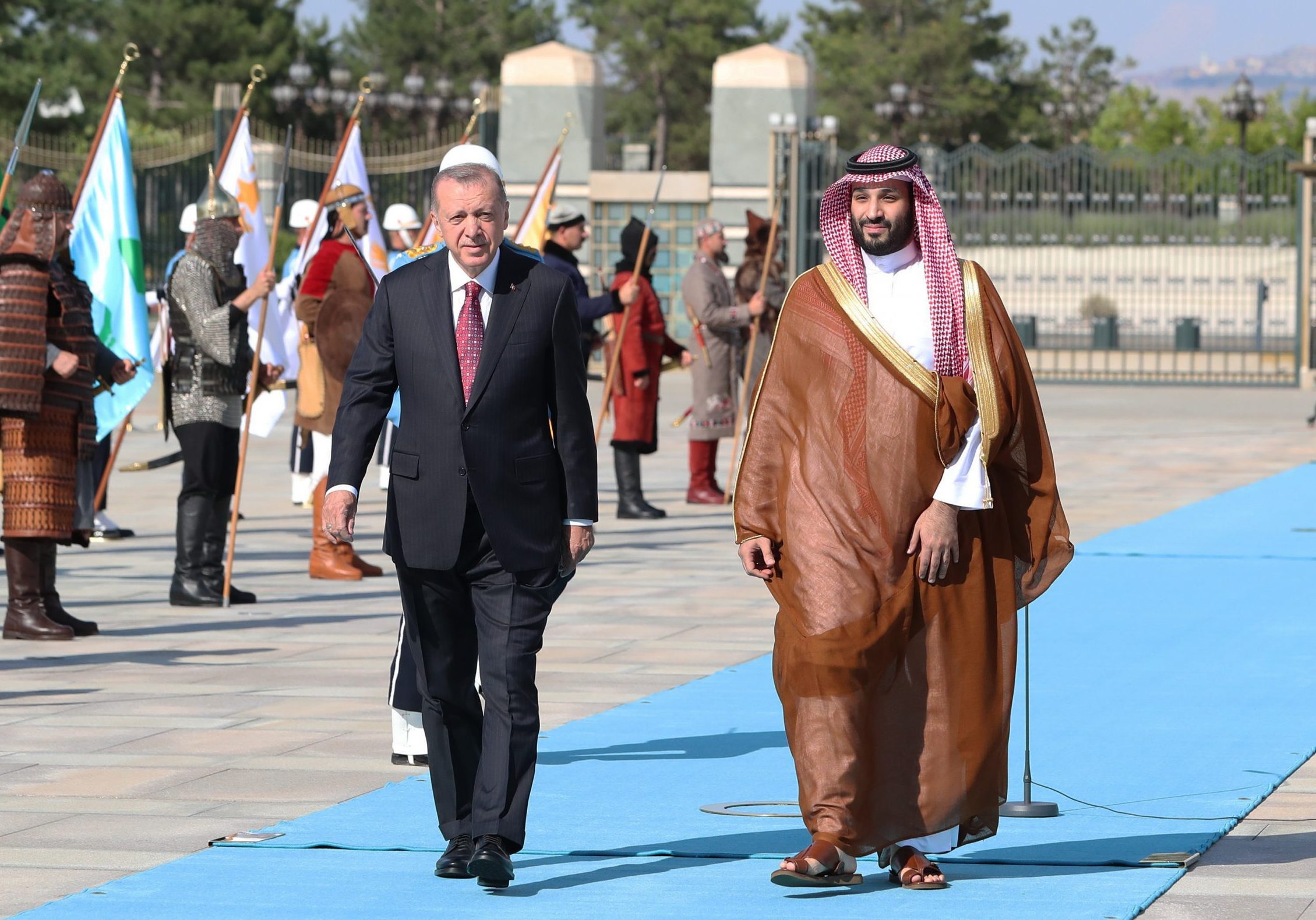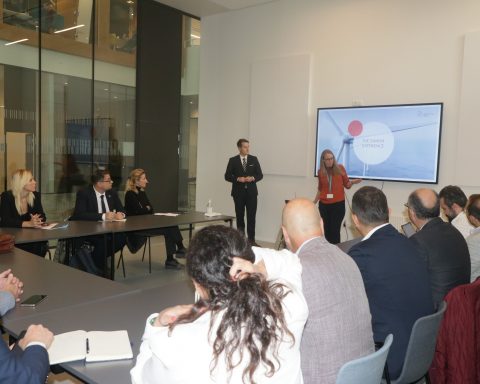We are going through a period in which the leadership changes in the Gulf countries are increasingly affecting regional politics. One of the strongest representatives of this trend is Saudi Crown Prince Mohammed bin Salman, who irrevocably entered Saudi politics in 2015 and became the country’s second most powerful man in 2017. Nowadays, Mohammed bin Salman’s visit to Türkiye after Egypt and Jordan has become an important agenda item in regional politics. After tensions and disputes in bilateral relations and regional politics, Mohammed bin Salman’s visit to Türkiye will most likely open up a new era for both Türkiye-Saudi Arabia relations and regional politics.
Three important points ought to be underlined here. The first of these three points is the defense, security and economic cooperation between Türkiye and Saudi Arabia as a result of regional normalization that brought about a bilateral rapprochement. The second issue is what will be Mohammed bin Salman’s priorities in Saudi Arabian foreign policy. The third item is what can be said in terms of regional politics after this visit.
The political disagreements between Türkiye and Saudi Arabia and the different perspectives on regional politics have begun to change for both countries as of 2020. With the resolution of the Gulf crisis and the Gulf’s gradual mending of ties with Qatar, a wave of normalization began to prevail in the Middle East. As a result of this wave, there have been waves of normalization in the Gulf, such as the normalization of the Gulf with Iran and the normalization with Türkiye. At this stage, it is seen that Qatar, Iran, Türkiye, and Gulf countries’ relations have been redefined. Although there is a difference as to what extent a rapprochement has been achieved between the countries, it is clear that a new era of normalization has begun and is cemented with high-level visits. In this climate of normalization, after mending ties with the UAE first, President Erdogan paid a visit to Saudi Arabia at the end of April. Then, as a return visit, Mohammed bin Salman paid a visit to Ankara with a large delegation on June 23.
Regarding the visit, first of all, it ought to be stated that the economic and trade relations between Türkiye and Saudi Arabia have been discussed. The trade volume of the two countries was $5 billion in each of 2017 and 2018, $4.8 billion in 2019, and just above $3 billion in 2020. With both the pandemic conditions and the implicit obstructions applied both to Turkish products and Turkish traders, a decrease was witnessed in bilateral trade and the export-import balance in Turkish-Saudi trade. However, one of the most important points of the joint statement published after the visit was on facilitating trade between Türkiye and Saudi Arabia. In this context, it can be expected that the difficulties facing bilateral trade will be removed gradually and trade activities will take place faster than in previous periods.
In addition to redefining economic relations, the two countries can also be expected to strengthen their cooperation in terms of defense and security. Saudi Arabia, and the Gulf states as a whole, have partially lost their confidence in the US as a security partner and provider, leading them to lapse into a climate of insecurity. In this context, the search for alternative partnerships has strengthened within the framework of the regional normalization climate. Turkey and Saudi Arabia both have their own unique and shared threat perceptions originating from the Middle East. In this framework, Saudi Arabia’s interest in Turkish defense industry products that have gained regional and international competence may also reveal various investment initiatives for defense industry companies.
The visit of the Crown Prince will also give an idea of the trajectory of Saudi foreign policy. Mohammed bin Salman seeks to strengthen both his internal leadership image and his external leadership profile by visiting Egypt, Jordan, and Türkiye. In this context, it is spoken that Mohammed bin Salman will visit the Greek Cypriot Administration, Greece, and Algeria following these visits.
In this context, Saudi Arabia, while trying to take its share of the regional normalization climate at the highest rate, also follows a policy focused on establishing economic and defense partnerships. Saudi Arabia, which presented a portfolio of nearly $8 billion to the Sisi administration within the scope of various agreements and projects during his Egypt visit, and the revival of a $3 billion project, which was initiated for a period, came to the fore during his visit to Jordan. After the $5 billion deposit provided by Saudi Arabia to the Central Bank of Egypt in March, the discussion of these investment projects shows that the Saudi financial support to Egypt and Jordan will most likely continue. In this context, Mohammed bin Salman is already eager to strengthen Saudi Arabia’s room for maneuver by strengthening the partnerships already established in Saudi Arabia’s foreign policy. In this framework, the role of Saudi Arabia may increase in the process of consolidating the political and economic dialogue between Türkiye and Egypt in the days ahead.
The joint declaration that was announced after the meetings of Turkish and Saudi delegations in Ankara demonstrates that Türkiye and Saudi Arabia reached a consensus to increase their economic, cultural, defense, and trade cooperation. Along with this development,
the visit is also of great importance in terms of regional politics. Mohammed bin Salman’s visit not only to Türkiye, but also to Jordan, Egypt, Bahrain, Qatar, and Oman showed the importance of regional cooperation in the foreign policy of Saudi Arabia. The fact that the visit to Türkiye has been held before Biden’s expected Middle East visit to Israel, Palestine, and Saudi Arabia, demonstrates that the regional dynamics are somewhat ready for further cooperation.
In this climate of cooperation and normalization, it is a diplomatic and strategic success for Türkiye and Saudi Arabia to overcome policy differences. What is more significant is that both countries could act together on regional issues like counter-terrorism efforts, ensuring safe passages in maritime trade routes and other economic and trade-related activities that need serious attention for both countries’ commitment to sustainable development.
Whether Mohammed bin Salman is eager for a greater diplomatic and regional/international role for Saudi Arabia or not, will probably be determined at the Riyadh Summit that is expected to be held on June 15th-16th. If so, that will require in-depth local, national, and regional analysis of the equations that involve Saudi Arabia.













